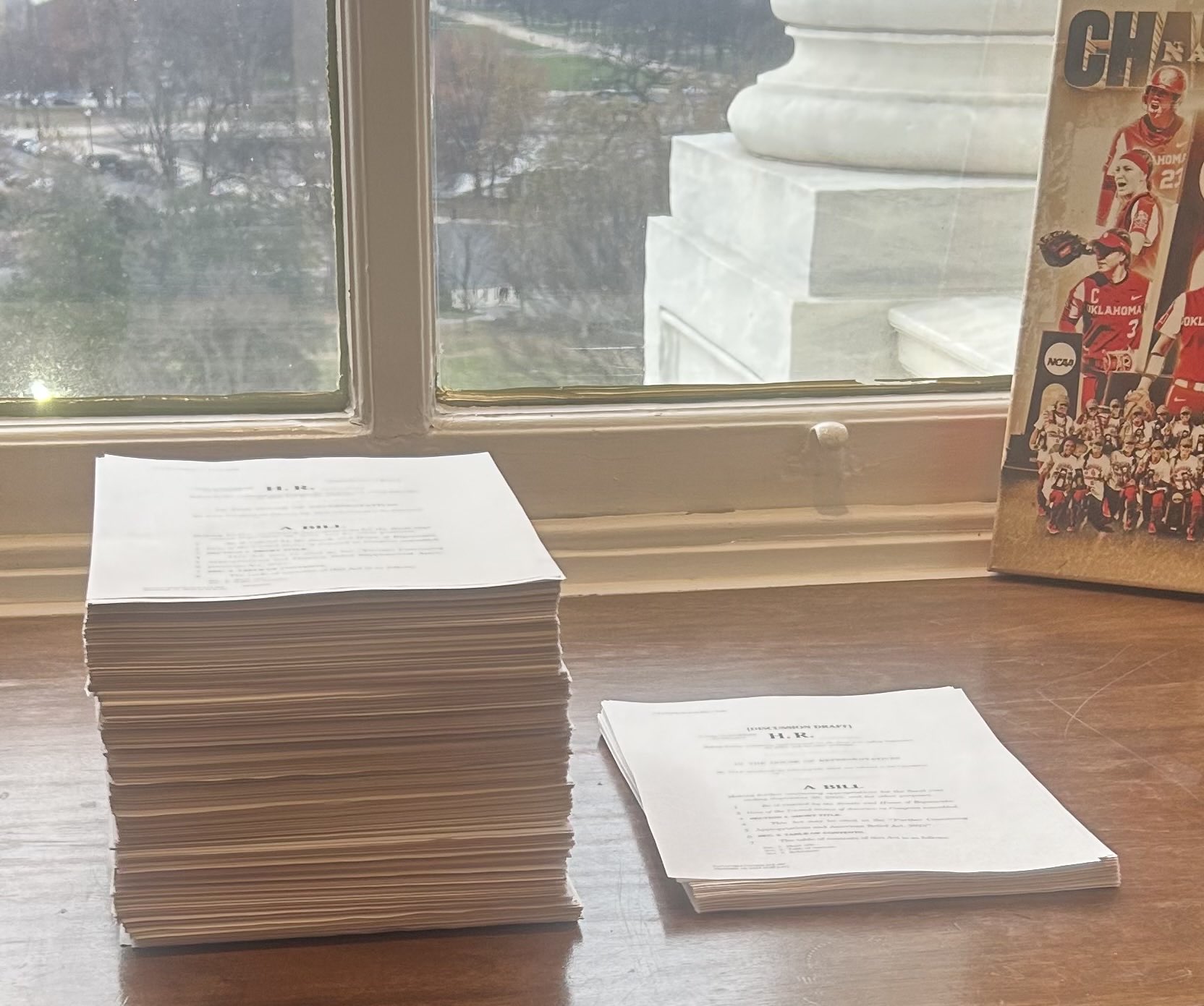Business
DOGE already on the job: How Elon Musk and Vivek Ramaswamy caused the looming government shutdown
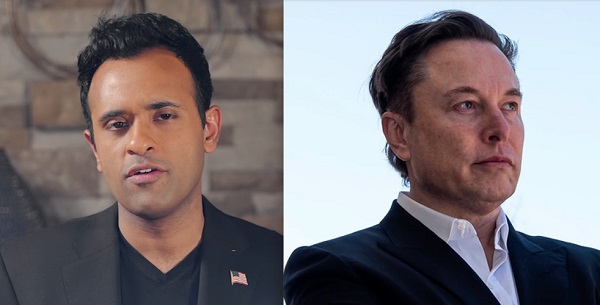
Legislators had 24 hours to read through 1,547 pages. Ramaswamy read them. Musk presented an alternative. The process collapsed.
Elon Musk and Vivek Ramaswamy are flexing their muscles even before President Elect Donald Trump’s inauguration, spiking a bipartisan spending bill. The bill was introduced on Tuesday with voting scheduled for Wednesday. Legislators were under massive pressure to approve of the spending bill or risk a government shut down. Problem is, the bill was over 1,500 pages long!
Chances are, the bill would have passed and in the ensuing weeks as details became known the public would have been outraged by all the extra plans to spend / waste taxpayer dollars. Legislators would have apologized by saying they simply had no time to read everything and they were desperate to avoid a shut down.
That’s where the new DOGE comes in. First Ramaswamy somehow read the bill and posted a video to TikTok and X to inform voters what they were going to be paying for in this new bill.
@vivekramaswamy Congress wants to waste your money without telling you, make sure that doesn’t happen
From MXMNews
The newly formed Department of Government Efficiency (DOGE), led by Elon Musk and Vivek Ramaswamy, successfully campaigned to halt the bipartisan continuing resolution (CR) in Congress. Musk and Ramaswamy took to X, rallying conservatives against the 1,547-page stopgap funding measure they argue is riddled with wasteful spending and unnecessary policy provisions.
Musk, a billionaire entrepreneur and vocal advocate for government reform, characterized the bill as a “pork-barrel” monstrosity. “Unless @DOGE ends the careers of deceitful, pork-barrel politicians, the waste and corruption will never stop,” Musk posted on X, adding that lawmakers who support the bill should be “voted out in two years.”
Meanwhile, Ramaswamy, a former Republican presidential candidate and DOGE co-chair, proposed an alternative to the bulky spending bill. Sharing a draft of his one-page resolution, he described it as a minimalist approach that avoids exacerbating historical spending excesses. “This is what a clean CR looks like,” he wrote, emphasizing the need for fiscal restraint.
Musk and Ramaswamy posted this to X.
Shorter = better. This bill is only 116 pages, instead of 1,500+ pages. Took a LOT less time to read. Glad to see the following garbage from yesterday’s bill removed in the current version: – Congressional pay raise/health benefits – 17 miscellaneous commerce bills – Random new pandemic policies, like funding for “biocontainment research laboratories” – Renewal of the “Global Engagement Center,” a key player in the federal censorship state
In record time, the public was informed, politicians were influenced by outraged taxpayers, and politicians blamed each other for a faulty bill and were forced to go back to the drawing board.
It’s all explained very well in this video presentation from Kaizen Asiedu, a Harvard graduate in philosophy who makes videos informing Americans about complicated political matters.
Friday’s deadline to avoid a government shutdown looms. Musk posted on X that a shutdown would be “infinitely better than passing a horrible bill.” His DOGE partner Vivek Ramaswamy urged Americans to contact their representatives to “stop the steal of your tax dollars.”
And President-elect Donald Trump posted this: “If Democrats threaten to shut down the government unless we give them everything they want, then CALL THEIR BLUFF,”.
Should the spending bill fail, it will mark a significant victory for DOGE and a potential turning point in efforts to reform Washington’s spending habits.
Business
Mark Carney Seeks to Replace Fiscal Watchdog with Loyal Lapdog

After scathing warnings from interim budget officer Jason Jacques, Liberals move to silence dissent and install a compliant insider with “tact and discretion.”
It’s remarkable, isn’t it? After a decade of gaslighting Canadians about their so-called “fiscally responsible” governance, the Liberal Party, now under the direction of Mark Carney, finally runs into a problem they can’t spin: someone told the truth. Jason Jacques, the interim Parliamentary Budget Officer, was appointed for six months, six months. And within weeks, he did something this government considers a fireable offense: he read the books, looked at the numbers, and spoke plainly. That’s it. His crime? Honesty.
Here’s what he found. First, the deficit. Remember when Trudeau said “the budget will balance itself”? That myth has now mutated into a projected $68.5 billion deficit for 2025–26, up from $51.7 billion the year before. Jacques didn’t just disagree with it. He called it “stupefying,” “shocking,” and, this is the one they hate the most, “unsustainable.” Because if there’s one thing Ottawa elites can’t handle, it’s accountability from someone who doesn’t need a job after this.
But Jacques didn’t stop there. He pointed out that this government has no fiscal anchor. None. Not even a fake one. A fiscal anchor is a target, like a deficit limit or a falling debt-to-GDP ratio—basic stuff for any country pretending to manage its money. Jacques said the Liberals have abandoned even that pretense. In his words, there’s no clear framework. Just blind spending. No roadmap. No compass. No brakes.
And speaking of GDP, here’s the kicker: the debt-to-GDP ratio, which Trudeau once swore would always go down, is now heading up. Jacques projects it rising from 41.7% in 2024–25 to over 43% by 2030–31. And what happens when debt rises and growth slows? You pay more just to service the interest. That’s exactly what Jacques warned. He said the cost of carrying the debt is eating into core government operations. That means fewer services. Higher taxes. Slower growth. The burden gets passed to your children while Mark Carney gives another speech in Zurich about “inclusive capitalism.”
And let’s talk about definitions. Jacques flagged that the Liberals are now muddying the waters on what counts as operating spending versus capital spending. Why does that matter? Because if you redefine the terms, you can claim to be balancing the “operating budget” while secretly racking up long-term debt. It’s accounting gimmickry, a shell game with your tax dollars.
He also pointed to unaccounted spending, about $20 billion a year in campaign promises that haven’t even been formally costed yet. Add that to their multi-decade defense commitments, green subsidies, and inflated federal payroll, and you’re looking at an avalanche of unmodeled liabilities.
And just to make this circus complete, Jacques even criticized the way his own office was filled. The Prime Minister can handpick an interim PBO with zero parliamentary input. No transparency. No debate. Just a quiet appointment, until the appointee grows a spine and tells the public what’s really going on.
Now the Liberals are racing to replace Jacques. Why? Because he said all of this publicly. Because he didn’t play ball. Because his office dared to function as it was intended: independently. They’re looking for someone with “tact and discretion.” That’s what the job listing says. Not independence. Not integrity. Tact. Discretion. In other words: someone who’ll sit down, shut up, and nod politely while Carney and Champagne burn through another $100 billion pretending it’s “investment.”
Let’s be clear: this isn’t just about replacing a bureaucrat. It’s about neutering the last shred of fiscal oversight left in Ottawa. The Parliamentary Budget Officer is supposed to be a firewall between reckless political ambition and your wallet. But in Carney’s Canada, independence is an inconvenience. So now, instead of extending Jacques’ term, something that would preserve continuity and show respect for accountability, the Liberals are shopping for a compliant technocrat. Someone who won’t call a $68.5 billion deficit “stupefying.” Someone who’ll massage the numbers just enough to keep the illusion intact.
They don’t want an economist. They want a courtier. Someone with just enough credentials to fake credibility, and just enough cowardice to keep their mouth shut when the spending blows past every so-called “anchor” they once pretended to respect. That’s the game. Keep the optics clean. Keep the watchdog muzzled. And keep Canadians in the dark while this government drives the country off a fiscal cliff.
But let me say it plainly, thank god someone in this country still believes in accountability. Thank God Jason Jacques stepped into that office and had the guts to tell the truth, not just to Parliament, but to the Canadian people. And thank God Pierre Poilievre has the common sense, the spine, and the clarity to back him. While Mark Carney and his Laurentian elite pals are busy gutting oversight, rewriting the rules, and flooding the economy with borrowed billions, it’s men like Jacques who refuse to play along. He looked at the books and didn’t see “investment”—he saw a ticking fiscal time bomb. And instead of ducking, he sounded the alarm.
Poilievre, to his credit, is standing firmly behind the man. He understands that without a real watchdog, Parliament becomes a stage play, just actors and scripts, no substance. Backing Jacques isn’t just good politics. It’s basic sanity. It’s the minimum standard for anyone who still thinks this country should live within its means, tell the truth about its finances, and respect the people footing the bill.
So while the Liberals scramble to muzzle dissent and hire another smiling yes-man with a resume full of buzzwords and a Rolodex full of Davos invites, at least one opposition leader is saying: No. We need a watchdog, not a lapdog. And in a city full of spineless bureaucrats, that’s not just refreshing—it’s absolutely essential.
Business
Sluggish homebuilding will have far-reaching effects on Canada’s economy

From the Fraser Institute
At a time when Canadians are grappling with epic housing supply and affordability challenges, the data show that homebuilding continues to come up short in some parts of the country including in several metro regions where most newcomers to Canada settle.
In both the Greater Toronto area and Metro Vancouver, housing starts have languished below levels needed to close the supply gaps that have opened up since 2019. In fact, the last 12-18 months have seen many planned development projects in Ontario and British Columbia delayed or cancelled outright amid a glut of new unsold condominium units and a sharp drop in population growth stemming from shifts in federal immigration policy.
At the same time, residential real estate sales have also been sluggish in some parts of the country. A fall-off in real estate transactions tends to have a lagged negative effect on construction investment—declining home sales today translate into fewer housing starts in the future.
While Prime Minister Carney’s Liberal government has pledged to double the pace of homebuilding, the on-the-ground reality points to stagnant or dwindling housing starts in many communities, particularly in Ontario and B.C. In July, the Canada Mortgage and Housing Corporation (CMHC) revised down its national forecast for housing starts over 2025/26, notwithstanding the intense political focus on boosting supply.
A slowdown in residential construction not only affects demand for services provided by homebuilders, it also has wider economic consequences owing to the size and reach of residential construction and the closely linked real estate sector. Overall, construction represents almost 8 per cent of Canada’s economy. If we exclude government-driven industries such as education, health care and social services, construction provides employment for more than one in 10 private-sector workers. Most of these jobs involve homebuilding, home renovation, and real estate sales and development.
As such, the economic consequences of declining housing starts are far-reaching and include reduced demand for goods and services produced by suppliers to the homebuilding industry, lower tax revenues for all levels of government, and slower economic growth. The weakness in residential investment has been a key factor pushing the Canadian economy close to recession in 2025.
Moreover, according to Statistics Canada, the value of GDP (in current dollars) directly attributable to housing reached $238 billion last year, up slightly from 2023 but less than in 2021 and 2022. Among the provinces, Ontario and B.C. have seen significant declines in residential construction GDP since 2022. This pattern is likely to persist into 2026.
Statistics Canada also estimates housing-related activity supported some 1.2 million jobs in 2024. This figure captures both the direct and indirect employment effects of residential construction and housing-related real estate activity. Approximately three-fifths of jobs tied to housing are “direct,” with the rest found in sectors—such as architecture, engineering, hardware and furniture stores, and lumber manufacturing—which supply the construction business or are otherwise affected by activity in the residential building and real estate industries.
Spending on homebuilding, home renovation and residential real estate transactions (added together) represents a substantial slice of Canada’s $3.3 trillion economy. This important sector sustains more than one million jobs, a figure that partly reflects the relatively labour-intensive nature of construction and some of the other industries related to homebuilding. Clearly, Canada’s economy will struggle to rebound from the doldrums of 2025 without a meaningful turnaround in homebuilding.
-

 Crime2 days ago
Crime2 days agoCBSA Bust Uncovers Mexican Cartel Network in Montreal High-Rise, Moving Hundreds Across Canada-U.S. Border
-

 Bruce Dowbiggin23 hours ago
Bruce Dowbiggin23 hours agoMaintenance Mania: Since When Did Pro Athletes Get So Fragile?
-
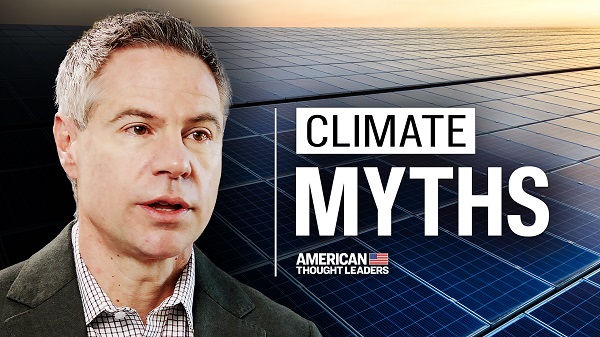
 Environment2 days ago
Environment2 days agoThe Myths We’re Told About Climate Change | Michael Shellenberger
-
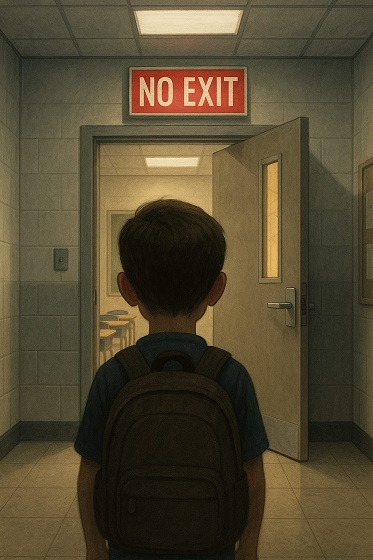
 Alberta20 hours ago
Alberta20 hours agoWhen Teachers Say Your Child Has Nowhere Else to Go
-

 armed forces2 days ago
armed forces2 days agoWhat A Second World War Aircraft Taught Me About Remembrance Day
-

 Addictions20 hours ago
Addictions20 hours agoCanada is divided on the drug crisis—so are its doctors
-

 armed forces2 days ago
armed forces2 days agoWhy we keep getting Remembrance Day wrong
-
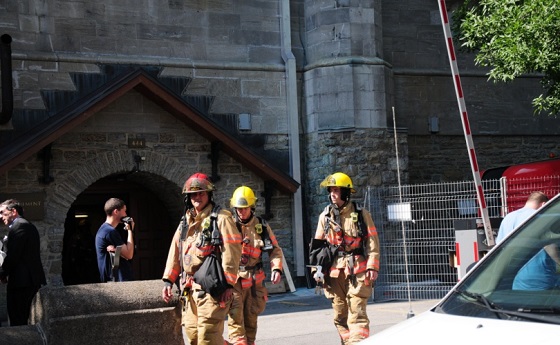
 National15 hours ago
National15 hours agoConservative bill would increase penalties for attacks on places of worship in Canada


